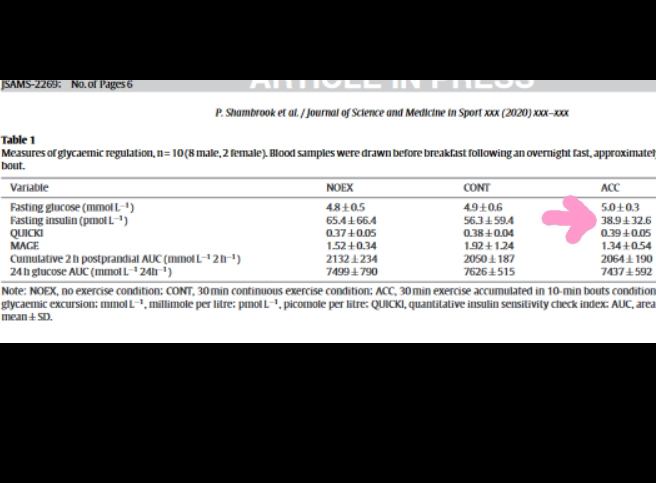A comparison of acute glycaemic responses to accumulated or single bout walking exercise in apparently healthy, insufficiently active adults
Philip Shambrook Journal of Science and Medicine in Sport Volume 23, Issue 10, October 2020, Pages 902-907
Objectives
To investigate the acute glyacaemic response to accumulated or single bout walking exercise in apparently healthy adults.
Design
Three arm, randomised crossover control study.
Methods
Ten adults (age: 50 ± 12.6 y; BMI 29.0 ± 5.4 kg m−2) completed three separate trials comprising three 10-min walking bouts after breakfast, lunch, and dinner (APPW), a single 30-min walking bout after dinner only (CPPW), or a no-exercise control (NOEX). Participants walked on a treadmill at a moderate intensity of 55%–70% heart rate reserve. Two-hour postprandial glucose response was assessed using a continuous glucose monitor.
Results
There was a difference in the pattern of the glucose response between the trials during the two hours following dinner (p < 0.001). Postprandial dinner glucose concentrations were not different between APPW and CPPW but were up to 1.01 mmol L−1 lower than NOEX (partial eta2 = 0.21, p = 0.041).
Conclusions
Ten minutes of moderate intensity walking completed 30 min after each meal lowers postprandial dinner glucose concentrations in comparison to no-exercise, and reduces glucose by a similar magnitude as a single 30-min bout after the evening meal. Short bouts of exercise after each meal may be recommended to minimise glucose elevations after dinner that might increase risk of cardiometabolic disease.















